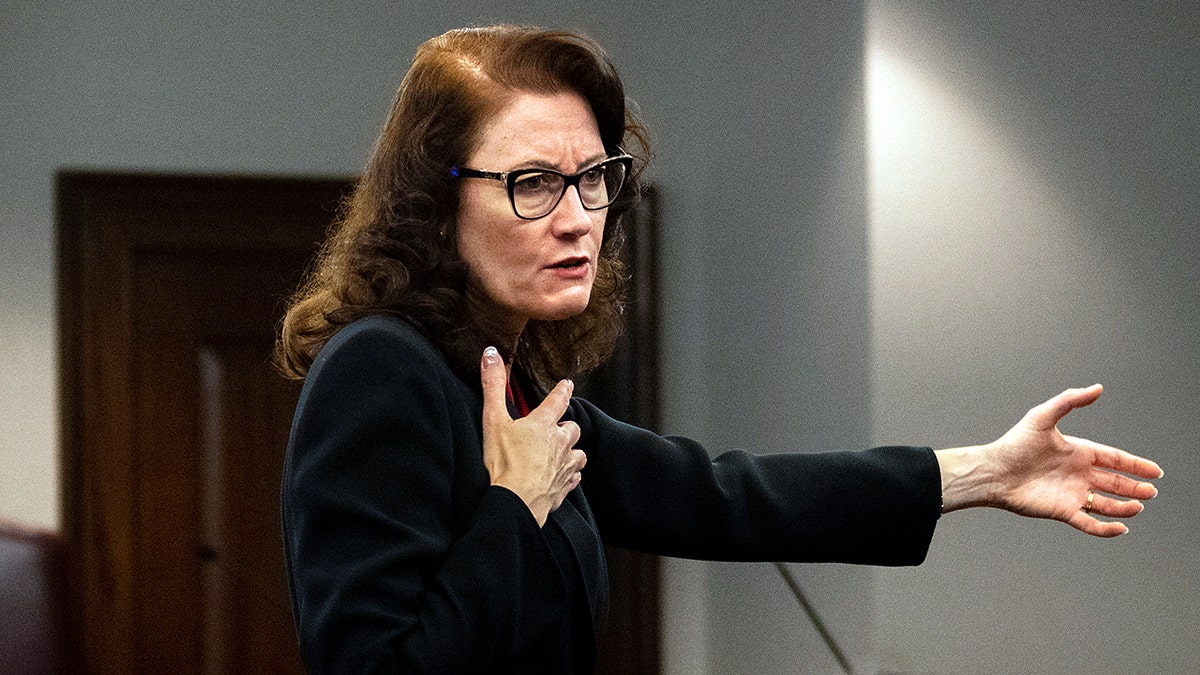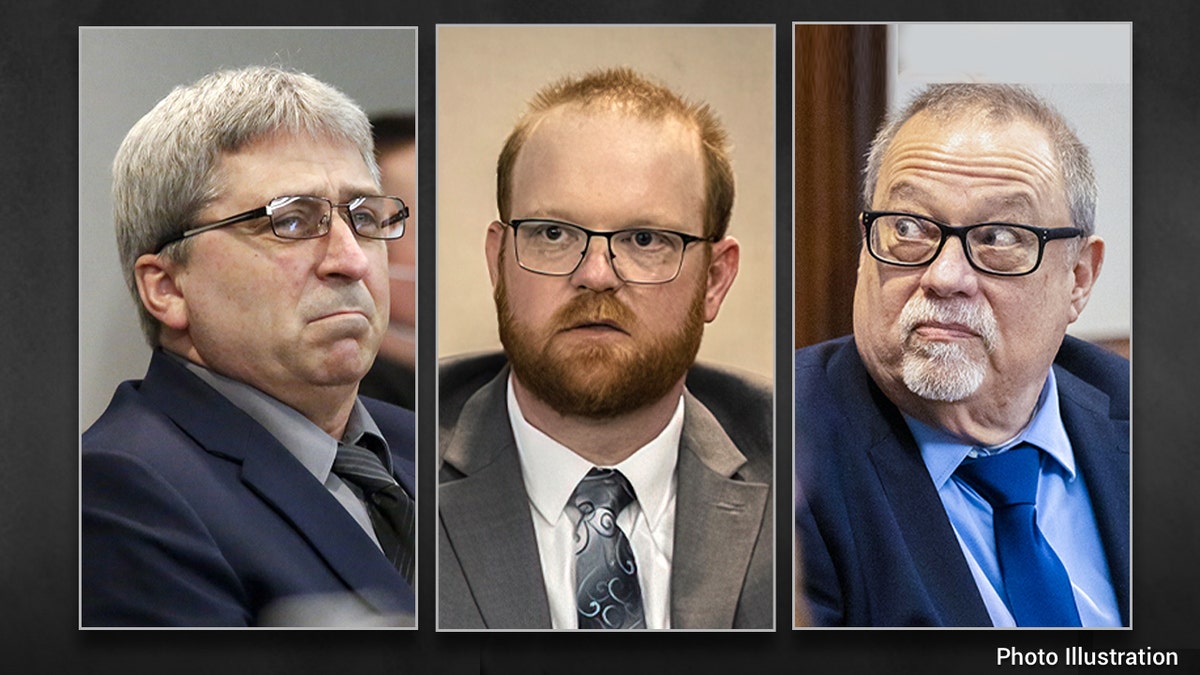Fox News Flash top headlines for February 16
Fox News Flash top headlines are here. Check out what's clicking on Foxnews.com.
Prosecution witnesses retook the stand Wednesday in the federal hate crimes trial of three White men convicted of murdering Ahmaud Arbery.
The first witness was FBI intelligence analyst Amy Vaughan, who went through evidence from the defendants' text messages and social media posts.
On the first day of testimony Tuesday, the jury heard from neighbors of the defendants who described how the February 2020 fatal shooting of the 25-year-old Black man shocked them.
They also watched graphic cellphone video and saw crime scene photos of Arbery's bloody body before hearing excerpts of interviews the defendants gave to police.

Prosecutor Linda Dunikoski presents a closing argument to the jury during the trial of Travis McMichael, his father, Gregory McMichael, and William "Roddie" Bryan at the Glynn County Courthouse, Monday, Nov. 22, 2021, in Brunswick, Georgia. (AP Photo/Stephen B. Morton, Pool)
AHMAUD ARBERY'S MOTHER FEELS ‘COMPLETELY BETRAYED’ BY DOJ'S HATE CRIMES PLEA DEAL
Father and son Greg and Travis McMichael armed themselves and used a pickup truck to chase Arbery as he ran through their coastal Georgia neighborhood on Feb. 23, 2020. A neighbor, William "Roddie" Bryan, joined the pursuit in his own truck and recorded cellphone video of Travis McMichael blasting Arbery with a shotgun.
No arrests were made until the video leaked online two months later.
Both McMichaels and Bryan were convicted of murder last fall in a Georgia state court and sentenced to life in prison.
All three pleaded not guilty to federal hate crime charges accusing them of violating Arbery’s civil rights and targeting him because he was Black.

Courtroom screen grabs Fox News (Fox News)
CLICK HERE TO GET THE FOX NEWS APP
A jury of eight White members, three Black people and one Hispanic person was sworn in Monday.
Prosecutors said in opening statements that evidence will show each defendant had a history of making racist comments. Defense attorneys said there's no excuse for their clients’ use of slurs but insisted that their deadly pursuit of Arbery was motivated by an earnest, though erroneous, suspicion that Arbery had committed crimes.









































